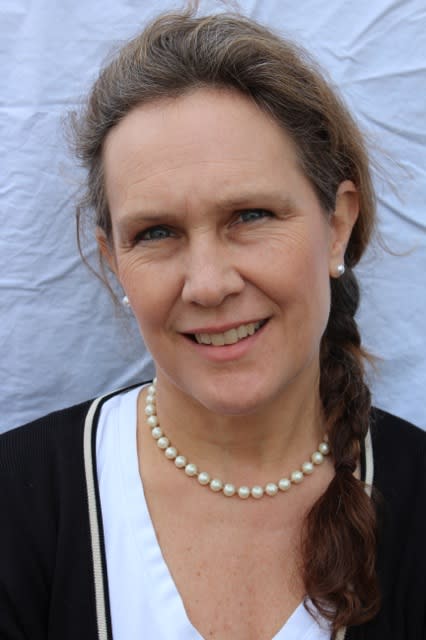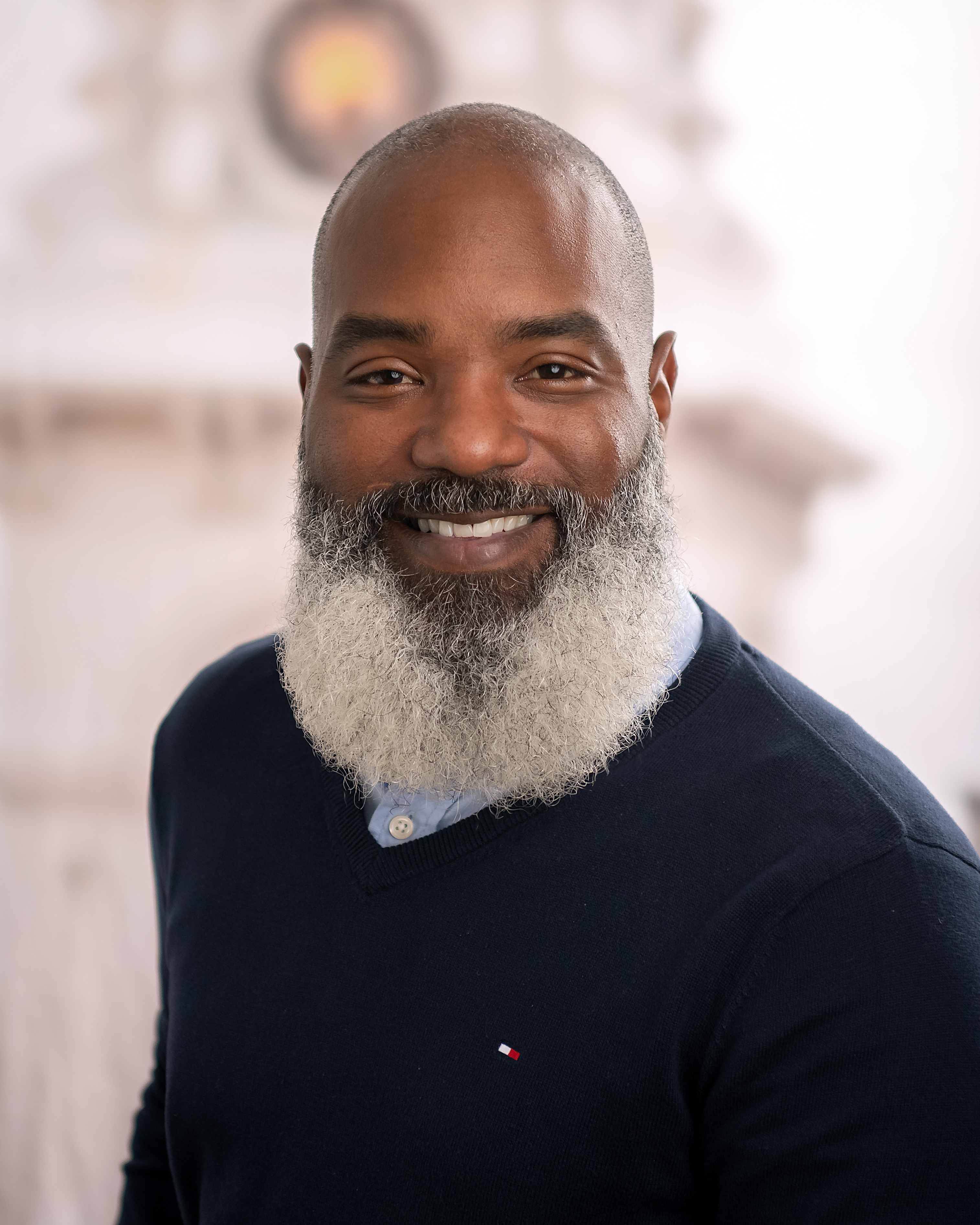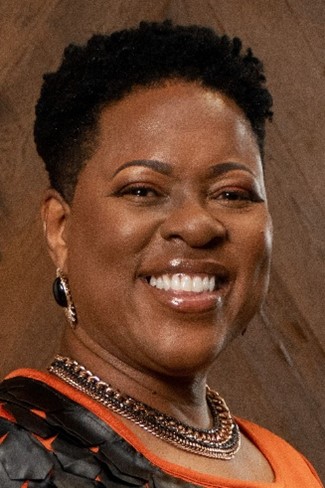

At Enterprise Bank, people and relationships come first. We encourage and foster a culture of diversity, equity, inclusion, and Belonging where everyone feels valued and respected. We are committed to a caring workplace that recognizes the importance of making a meaningful, positive difference in the lives of our team members, customers, and communities.
Click here to learn more about Enterprise Bank's current and ongoing DEIB initiatives.
- May 2022: Leveling the Playing Field: Interrupting Patterns of Power and Privilege
Using a series of pointed questions, Debby works with participants to build a graphic map of the groups people belong to because of social locations and historical roles in U.S. society. Participants will explore the social beliefs, attitudes, and dynamics that can perpetuate patterns of power and privilege. Understanding that the more versed we become in the ways of whiteness, the more able we are to set our individual and institutional intentions to actively counter it.
This seminar offers a reframing of DEI work to shift current power and privilege dynamics to equitable shared problem solving, envisioning, and co-creating. Participants will leave with powerful tools to analyze power dynamics and cultivate transformative cultures in their circles of influence.
This seminar will help you to:
- Understand the dynamics of power and privilege, particularly with regard to race and ethnicity
- Build the skills necessary to disrupt power and privilege and instead cultivate resilient and transformational cultural attitudes and behaviors
- Monitor your own personal and institutionalized tendencies to think and act in ways that reproduce power and privilege dynamics

Presented By: Debby Irving, Racial Justice Educator and Writer
Debby Irving brings to racial justice the perspective of working as a community organizer and classroom teacher for 25 years without understanding racism as a systemic issue or her own whiteness as an obstacle to grappling with it. As general manager of Boston’s Dance Umbrella and First Night, and later as a classroom teacher, she struggled to make sense of tensions she could feel but not explain in racially mixed settings. In 2009, a graduate school course gave her the answers she’d been looking for and launched her on a journey of discovery. Debby now devotes herself to working with white people exploring the impact white skin can have on perception, problem-solving, and engaging in racial justice work.
- April 2022: I’m a Good Person! Isn’t That Enough?
Using historical and media images, Debby examines how she used her white-skewed belief system to interpret the world around her. Socialized on a narrow worldview, Debby explores how she spent decades silently reaffirming harmful, archaic racial patterns instead of questioning the racial disparities and tensions she could see and feel.
This workshop is designed to support white people in making the paradigm shift from ‘fixing’ and ‘helping’ those believed to be inferior, to focusing on internalized white superiority and its role in perpetuating racism at the individual, interpersonal, institutional, and cultural levels.
- Understand the impact media images and curricular offerings have on the construction and maintenance of our belief systems
- Discover the connection between belief systems, data interpretation, and behaviors
- Identify what whiteness is and how easily it becomes normalized in white and/or leadership spaces
- Recognize the way our belief systems collect evidence that supports what we already believe to be true, setting us up to disbelieve and/or not seek out different perspectives

Presented By: Debby Irving, Racial Justice Educator and Writer
Debby Irving brings to racial justice the perspective of working as a community organizer and classroom teacher for 25 years without understanding racism as a systemic issue or her own whiteness as an obstacle to grappling with it. As general manager of Boston’s Dance Umbrella and First Night, and later as a classroom teacher, she struggled to make sense of tensions she could feel but not explain in racially mixed settings. In 2009, a graduate school course gave her the answers she’d been looking for and launched her on a journey of discovery. Debby now devotes herself to working with white people exploring the impact white skin can have on perception, problem-solving, and engaging in racial justice work.
- October 2022: Courageous Conversations
Click here to view the presentation
The ability to comfortably discourse about DEI and other social and workplace impact topics is an important skill to cultivate, in and out of the workplace. Many of us hesitate to have these conversations out of fear of saying the wrong thing or giving the wrong impression. This session provided strategies to help ensure these conversations are healthy and productive.
- Strategies for facilitating difficult conversations
- Common roadblocks to dialogue and how to avoid them
- How to foster healthy, productive relationships through dialogue

Presented by: Jermaine Moore
Jermaine Moore is the founder of The Mars Hill Group where he specializes in Diversity, Equity, and Inclusion (DEI), Leadership Development, Executive Coaching, Team Development, Culture Assessment and Development, Communication Training, and Change Management. An active instructor for University of New Hampshire’s Professional Development and Training Program, Jermaine serves as the Diversity Director for SHRM’s NH State Council and is a board member for the Diversity Workforce Coalition (DWC) whose mission is to promote diversity in the workplace through education, training, and enhanced networking opportunities.
- June 2022: Make Room for Us: Changing the Racial Composition and Culture of Your Board
At a time of great change, we have morphed into a new age where collaboration and inclusion are becoming more important for nonprofit growth. The issue of diversity needs to be addressed.
Since 2010, 96% of all U.S. counties registered an increase in their percentage of nonwhite residents. Although the U.S. is becoming more racially diverse, the people who lead nonprofits in the U.S., including board members, remain disproportionately white. In fact, less than 15% of board members are people of color and 90% of Board Chairs are white.
As stewards of the public good, boards must act to alter and eliminate beliefs, practices, and policies that perpetuate structural and institutional racism and exclusion. This means being intentional about changing the racial composition of its members and adapting cultures that alienate and exclude others from feeling welcomed.
In this session, boards will learn how to work to ground organizational values and recruitment practices so that they are inclusive. They will redefine their roles by accepting accountability for setting the tone with deliberate and strategic action to have an increased presence of people of color on boards.
A few takeaways from this seminar include:
- Understand why board diversity matters and accept how board demographics are changing
- Empower Leaders of Color in Nonprofits to Move towards Race-Equity on Boards
- Discover hiring policies that reveal bias- using an equity lens when hiring the Executive Director
- Locate sources to recruit diverse members
- Recognize the impact of diversity on fundraising

Christal M. Cherry is a nationally recognized nonprofit executive and professionally trained fundraiser. With over 20 years in the nonprofit sector, she has supported higher education institutions, human services organizations, and faith-based missions. Christal is the Principal and CEO of The Board Pro, a consulting firm designed to help nonprofits build effective boards.
- April 2022: Part III, Diversity and Inclusion in the Workplace
Community leaders discussed how their organizations have embraced diversity and inclusion in the workplace.
Topics included:
- Creating policy and procedures to acknowledge and support diversity and inclusion
- Thoughtfully building a more diverse employee population, board of directors, client/patient roster, and vendor network
- Actions being taken to move forward on this subject
- Changing culture top to bottom
Due to the nature and sensitivity of the discussion topics, this session was not recorded.
Our Panelists:
Yun-Ju Choi, Chief Executive Officer, Coalition for a Better Acre
.jpg)
Yun-Ju Choi joined Coalition for a Better Acre in May 2014, bringing over 20 years of experience impacting for-profit and nonprofit organizations in the Greater Boston area, most recently at Madison Park Development Corporation as their Managing Director of Programs and Operations. In addition to her work with Community Development Corporations, Yun-Ju has experience in the philanthropic sector as Director of Donor Services with The Boston Foundation, as well as senior leadership positions with other nonprofits. Jonathan Isaacson, Chief Executive Officer, The Gem Group, Inc.
Jonathan is Chairman and CEO of The Gem Group, Inc, a privately held, multiple award-winning supplier of bags, business accessories, electronics, stationery, and gifts to the promotional market. The company has been recognized as one of the 15 largest companies in the industry. Since spring 2020, as a result of the pandemic, they have delivered tens of millions of units of high quality, critical PPE to senior living operators, health care facilities, and corporations. Sheila Och, Chief Public Policy and Equity Officer, Lowell Community Health Center
In Sheila’s current role, she leads community health strategies, the development, design, implementation, and evaluation of public health programs with a focus on racial and health equity, and oversees advocacy efforts on federal, state, and local public policies to advance the wellbeing of our community. Recognized for her cultural competence and language access expertise, she's worked with organizations throughout the state and region to effectively deliver services that meet the social, cultural, and linguistic needs of all patients. Our Moderators:
Carl Howell, Chief Program Officer, Community Teamwork
.jpg)
Carl’s current administrative focus is on the operations of a variety of programming and supportive services that CTI provides across 72 cities and towns within Massachusetts. Programs that CTI operates include Head Start and Early Child Care, Emergency Shelter programming for families and individuals, Housing Consumer and Education Center, WIC, Fuel Assistance and Subsidized housing programming, among others. Christa Brown, Founder and Executive Director of the Free Soil Arts Collective
.jpg)
Christa is the Founder and Executive Director of the Free Soil Arts Collective, an arts organization with a mission to amplify and strengthen the voices of artists of color. Often having to travel to Boston for consistent work as an actor, she saw a need to create and promote artistic endeavors that accurately reflected the richness of the community in which she lived. Independent research so far indicates that the Free Soil Arts Collective is the first theatre organization of its kind in the Merrimack Valley to be led by a Black woman. Christa also works as a consultant with nonprofits and companies looking for creative ways to tell stories of their impact.
- November 2020: Part II, How to Cultivate an Inclusion Mindset
Keynote Speaker, Kisha Dixon
As a training leader, public speaker, and culture change agent, Kisha Dixon, The Training Associates Senior Learning Consultant, has seen leadership defined numerous ways over the years. With over almost 25 years of experience designing and facilitating behavior-based sales, coaching, and leadership solutions, Kisha's approach is refreshingly unique. Kisha is a specialist in guiding large groups like ours through difficult conversations about the impact of race, culture and diversity centered around the ideals of equity and inclusion. During our conversations with her, we were impressed by her unique energy of being relatable, transparent, and honest – with a perfect touch of humor. Some of the organizations that her work has impacted include America Online, Girls Scouts of America, multiple regional banks and credit unions including The Coca-Cola Family Federal Credit Union, Toll Brothers Luxury Homes, and Estee Lauder Companies.
Audience Takeaways:
- Explore how our circle of influence informs unconscious racial and cultural bias
- Understand the relationship between bias and racism—how does it grow?
- Explore how choosing language of empathy and inclusion can change the way see things—and how others respond
- Discover simple things you can do confront your own unconscious bias through learning and exposure to racial and cultural experiences different from your own
Presentation Notes and Resourceful PDFs which you can download:
- Detailed Notes and Recap of Resources from Zoom Chat Discussion On How to Cultivate An Inclusion Mindset
- Unconscious Bias Activity (Includes Facilitator Notes): Who Is In Your Circle?
- Training Resources for Championing Diversity and Inclusion
Special thanks to our seminar presenters who made Part II in this series possible: Greater Lowell Community Foundation, Enterprise Bank, Lowell Development & Financial Corporation, Greater Lowell Chamber of Commerce, The Lowell Plan, Lawrence Partnership, Essex Community Foundation, Non-Profit Alliance of Greater Lowell, and The Theodore Edson Parker Foundation.
- September 2020: Part I, Exploration and Awareness
Keynote Speaker, Deo Mwano
Deo Mwano is a community advocate whose work with Southern New Hampshire University’s College for America and the Department of Education for the State of New Hampshire, preceded him starting his own consultancy. Even before all of this, Deo had been independently hosting his own in-person community forums under the theme of “We Are All Human.” He lives and breathes this work. He is skilled in creating space for difficult conversations about racial bias and its systemic impact having done this with partners throughout the nation, regionally within New England, and locally. We are grateful for his leadership in helping all of us learn more about the powerful impact that bias has in dehumanizing and pulling us apart, so that we can become better at disrupting these patterns.
Audience Takeaways:
- Understand the social construct of racism in America
- Understand that our history is not everyone’s history
- Understand that we all have biases
- Understand the manifestation of microaggression
- What can we do about it?
Watch the Recording:
Recommended Reading to Learn More About Disrupting Patterns of Racial Bias
- Cherry, K., 2010. The Everything Psychology Book, 2Nd Edition. Cincinnati: F+W Media.
- DiAngelo, R., n.d. White Fragility.
- Jennifer L. Eberhardt, P., n.d. Biased: Uncovering The Hidden Prejudice That Shapes What We See, Think, And Do.
- Reynolds, J., 2020. Stamped. New York: Little, Brown and Co.
- Sue, D. and Spanierman, L., 2020. Microaggressions In Everyday Life. Hoboken, N.J.: Wiley.
- n.d. Ta-Nehisi Coates' Between The World And Me.
- Types of Racism
Racism is a social construct to take advantage of others for resource and benefits.
Three types of racism
- Modern: More subtle, concealed in fabric of society.
- Symbolic: Feeling that Black Indigenous People of Color (BIPOC) are violating cherished values and making illegitimate demands for changes in the status quo.
- Aversive: Conflict between the denial of personal prejudice and unconscious negative feelings and beliefs. For example, “You say you’re on our team, but deep inside, you really aren’t.
- Types of Bias
We all have biases:
Hindsight Bias
- People see events, even random ones, as more predictable than they are. “I knew that was going to happen.” They shift their point of view to say they could have foreseen the event as happening that way.
- We view events as inevitable. We rewrite history and how we remember things, so they fit our beliefs.
Anchoring Bias
- We tend to be overly influenced by the first piece of information that we hear.
- This adversely influences salary and price negotiations.
Misinformation Effect
- Our memories of events tend to be influenced by things that happened after the event itself.
- Our brain can be influenced by events that never occurred.
Actor Observer Bias
- We attribute our behaviors to external factors, but attribute others’ behaviors to their internal factors.
- We justify when we make a mistake.
False-Consensus Effect
- Overestimating how much other people agree with our own opinions, beliefs, behaviors, attitudes, values.
- We then tend to align ourselves with people with our same views.
Halo Effect Bias
- Physical attractiveness stereotypes: We tend to think what is beautiful is good.
- How we define beauty impacts how we define others’ worth.
- Affects hiring.
Self-Serving Bias
- People tend to give themselves credit for success but lay failures on outside causes.
- We blame others for our shortcomings.
Availability Heuristic Bias
- You believe something is more common than the reality
- You start to believe in stereotypes and prejudice.
- Walking down street, see someone of color and grab your purse tightly. Or landlord/renter chooses whether to lease/rent based on race.
Optimism Bias
- We overestimate the likelihood that good things will happen to us while underestimating the probability that negative events will impact our lives.
- When other people talk of negative events, we assume they’re exaggerating or misrepresenting their experience.
- Manifestation of Aggression
Society has influenced how we see others and biases hold on to how we see the world. Those come together to form micro and macro aggressions.
- Macroaggressions: Extreme forms of racism (lynching, burning and beating).
- Microaggression: Speech or behavior that communicates hostile, derogatory, or negative attitudes towards stigmatized or culturally marginalized groups.
- Micro-assault: Explicit racial verbal or nonverbal attack: name calling, avoidant behavior, discrimination.
- Micro-insult: Rudeness and insensitivity, snubs.
- Micro-invalidation: Communications that exclude, negate, or nullify the thoughts, feelings, or experiential reality.
- Receiving Feedback
To move these conversations forward, we must be able to hear feedback and criticism without reacting/responding with negative feelings (attacked, shamed, accused, judged, etc.) or behaviors (withdrawing, arguing, denying, seeking absolution, etc.).
- Actions Towards Ending Racism
- Design relationships/alliances. Get to know your community and find common ground.
- Transparent accountability and consideration of different perspectives. Have to create a safe space.
- Co-design solutions. Do the relationship building so whites are not designing solutions for people of color.
- Create inclusive policies.
- Address racial issues in your environment.
- Learn from those who have knowledge of racial issues beyond Anglo perspectives and materials.
- Diversify your social activities.
- Celebrate diversity.
.JPG)
.JPG)